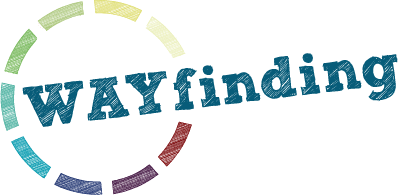| ANNE WILLIAMSON |
As a teenager, I loved Psalm 139. Because I struggled with depression, verses such as 11 and 12 - "If I say, 'Surely the darkness shall cover me, and the light around me become night,' even the darkness is not dark to you; the night is as bright as the day..." - were deeply comforting. I felt hopeful and connected to something bigger when reading it.
That is, until I got to verse 19. You can read the whole psalm here, but to give you an idea the next few verses include, "O that you would kill the wicked, O God... Do I not hate those who hate you, O Lord?... I hate them with perfect hatred; I count them my enemies." Such anger and violence. Ideas that did not sit well with my image of God. I wanted to take a giant red pen through them... and so I did. For many years, anytime I read or shared Psalm 139, I simply skipped over verses 19 - 22. I did this until it stopped working for me... LEARN, LISTEN, LOVE...
Psalm 139 is a lament. Specifically, it is an individual lament, meaning its author wrote from a personal, particular experience. As with most individual laments, the details are faded, making room for others, for me, for you, to insert meaning. This is wonderful, but sometimes, it leads us to forget the person, the context, behind the words. The words become less a human expression and more a godly one. When this happens, we're more apt to take big red pens to scripture and other sacred text that don't fit with our image of God. But maybe, it's important to sit with these words too, maybe they can teach us something as well.**
Which brings me back to my story. Skipping those violent lines in Psalm 139 stopped working for me because, once I recognized the humanity of my psalmist, I started relating. Not to the killing or even hating part - I don't judge him or her; his words mirror the environment and theology of his time - but I did connect to the anger. I began to allow myself to feel angry - at situations I'd endured, injustices I feel powerless against, the negative energy of certain people, and especially, the unhelpful tapes in my own head. You know the ones: "I'm not worthy of [fill in the blank]. I'll never..." And, let's be honest, this is the stuff, the STUFF, that keeps most of us trapped, stalled, anxious, maybe even depressed. Until...
We allow ourselves to feel and shout the whole psalm... not just the I trust, I am grateful, believing parts. We may use different language - the song below, for example, is my new favorite modern psalm - but the need to speak our truth, to rail against that which binds us is universal to the human experience and fundamental to change. It's what allows us to finally say, "No more" and let that STUFF go.
Stop for a moment and listen. What thoughts, feelings, questions, etc. are stirring in you? Share them with someone, with God. Keep listening...
**This was a challenge given to me by a wise seminary professor; that is, not to try and explain away all the violent, misogynistic, etc. texts in scripture. Rather, to confront them so we don't make the same mistakes.
Listen here to Johnnyswim perform "Diamonds" at an NPR Tiny Desk Concert. You'll need to jump forward to 8:08 minutes.
What did you hear? How are you feeling? What's stirring in you? Keep listening...
Now, actively love another, yourself, God by setting an intention for the coming week out of what's stirring in you. Maybe read Psalm 139 or listen to "Diamonds" again or your own favorite modern psalm - they're everywhere! - and let it help you get in touch with your STUFF. Be brave and feel. Then, be brave and decide to let it go. Whether you actually can or not in this moment is not the point - after all, there may be much more you need to process, more to your psalm; the point is that you intend, your intention, from the beginning, is to let it go. Your intention is to be free.



